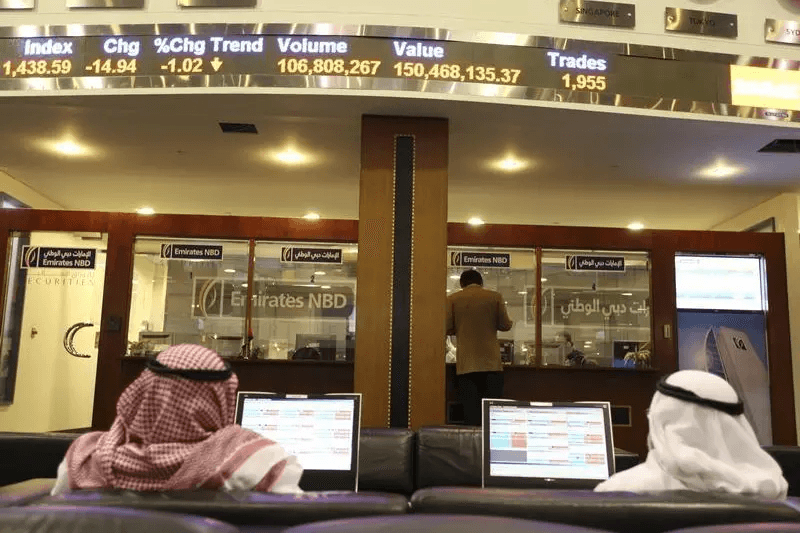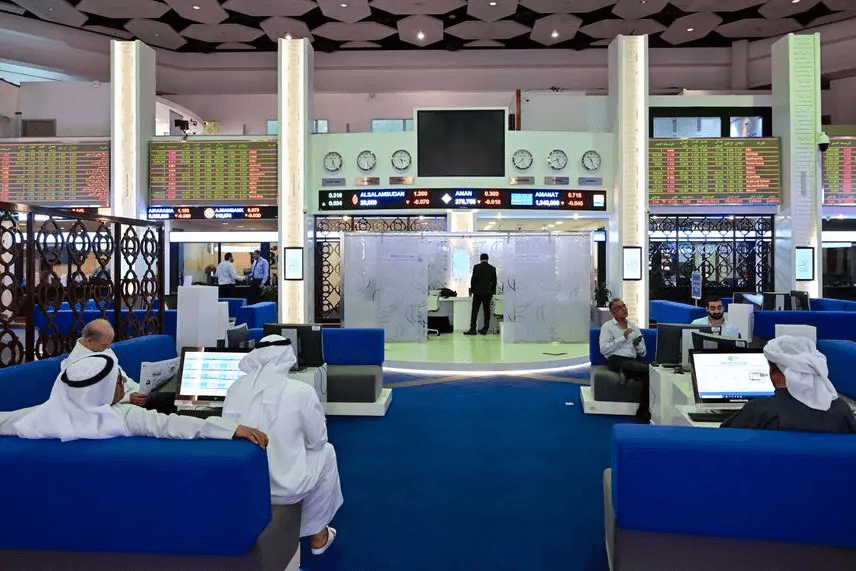Gulf Markets End Mixed on US Economic Concerns: Latest

Today, Gulf markets closed with mixed results, primarily due to concerns about the U.S. economy. While some markets showed positive momentum, others faced selling pressure. U.S. economic data is influencing global financial markets, and its effects are clearly seen in Gulf exchanges. Investors are exercising caution as they evaluate potential changes in interest rates and what those changes could mean for regional markets.
Table of Contents
How Gulf Markets Performed Today?
The performance of the Gulf markets showed variation today. In Saudi Arabia, the Tadawul Index closed with small gains, while the indexes in Dubai and Abu Dhabi saw minor declines. While the Kuwaiti and Bahraini markets displayed a mixed trend, the Qatari stock exchange remained stable. Global economic factors, especially worries about U.S. interest rates and changes in oil prices, affected investor sentiment.
Why Some Markets Rose While Others Fell?
- The performance of Saudi Arabia’s Gulf markets improved, thanks to stable oil prices and a robust banking sector.
- Due to uncertainty in the real estate sector, the markets of Dubai and Abu Dhabi experienced pressure.
- The market in Qatar stayed stable owing to favorable advancements in gas exports.
- Investor sentiment in Kuwait and Bahrain was cautious due to worries about U.S. economic policies.
How US Economic Data Affects Gulf Stocks?
The Gulf markets are directly influenced by key economic indicators from the U.S., including inflation rates, decisions on interest rates by the Federal Reserve, and trends in the job market. A slowdown in the U.S. economy could lead to a decline in global oil demand, which would present difficulties for Gulf economies. Moreover, elevated interest rates in the U.S. diminish the appeal of investments in emerging markets, which affects the performance of regional stocks.
Biggest Winners and Losers
Top Gainers:
- Saudi Arabia: Saudi National Bank (SNB) and Aramco saw gains.
- Qatar: Qatar National Bank (QNB) remained stable.
- Dubai: Emirates NBD showed minor growth.
Top Losers:
- Abu Dhabi: Aldar Properties faced losses.
- Dubai: Stocks related to airlines and tourism came under pressure.
- Kuwait: Financial sector stocks showed volatility.

What Investors Are Focusing On Next?
Federal Reserve’s next policy decision, as an interest rate hike could impact global investment flows. Oil prices, which remain a crucial factor for Gulf economies. Geopolitical developments, particularly any potential conflicts in the Middle East that could affect investor confidence.
What to Expect in the Coming Days?
- If indications of a deceleration in the U.S. economy grow, Gulf markets might experience heightened pressure.
- Market sentiment will be significantly influenced by oil price fluctuations.
- Investors will monitor corporate earnings reports as they will shed light on the financial status of major Gulf companies.
Conclusion
Today, Gulf markets showed varied performance due to uncertainties surrounding the U.S. economy. Investors are vigilantly monitoring international financial policies, changes in oil prices, and geopolitical dynamics. As traders evaluate possible risks and prospects in the changing economic environment, market sentiment continues to be careful. In the upcoming days, additional market fluctuations are expected, mainly influenced by developments concerning the U.S. economy and regional financial trends.
FAQS
How does U.S. economic data affect Gulf stock markets?
The performance of the U.S. economy, particularly regarding interest rates, inflation, and employment figures, affects investor sentiment worldwide. A weakening U.S. economy could lead to a drop in oil demand, which would adversely impact Gulf stocks. Moreover, the increase in interest rates in the U.S. diminishes the appeal of investments in emerging markets.
What key factors will Gulf investors focus on next week?
Next week, investors will keep a close eye on the Federal Reserve’s possible interest rate decisions, changes in oil prices, and geopolitical events in the Middle East. Additionally, corporate earnings reports will influence market sentiment.






